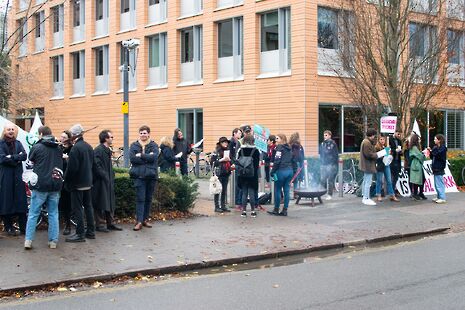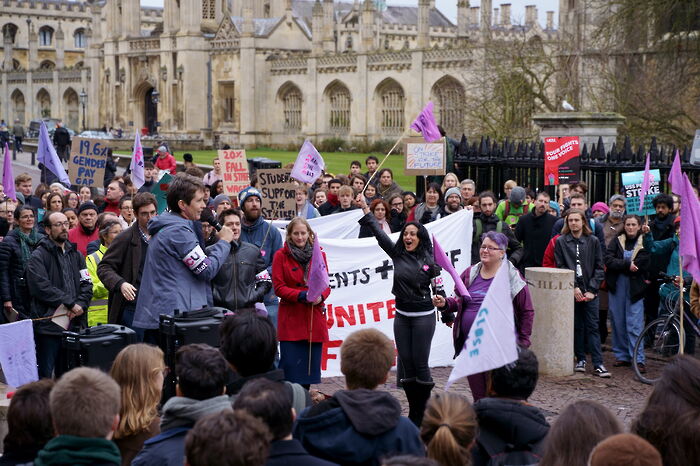Freshers react to the strike
For those not in third year or above, this week’s industrial action is a new experience. Varsity spoke to new students about how prepared they felt

Strike action may be a recent memory for students in third year or higher, but first-years, undergraduate and postgraduate alike, are experiencing the impact of industrial action at Cambridge for the first time. Varsity talked to members of both groups about their experiences so far and the information they had been provided prior to the start of the strikes.
Undergraduates reported receiving varying degrees of information. “We had very little information provided to us except to inform us when the strikes were happening, until about two days before where we were bombarded by emails from the Senior Tutor, CUSU and other members of our college student union,” said Rose Sargent, who is studying law at King’s.
Iona Fleming, studying MML at Christ’s, said that her college JCR had been very supportive of students, and that the JCR have “put together a lot of information in mass emails [about the strikes] and why they’re happening, which, as a fresher who’s never seen this kind of thing take place, I really appreciate.”
Most understood the reasons for the strikes and support the causes, but this has reportedly been hard to put into practice. James Walkling, a Natural Sciences student at Corpus Christi, said, “I do support the causes the strikes intend to support, although unfortunately I’m obliged to continue going to lectures and entering department buildings otherwise I will miss 16 lectures in total and mandatory labs for my first year.”
Sargent expressed similar concerns about missing course content, saying that “the Law Faculty has been utterly unwilling to compromise for students who want to support the strikes and not attend lectures... those of us who support the strikes are considerably disadvantaged in exams as we will be tested on content that we haven’t attended lectures on.”
The impact of the strikes can be felt acutely by students on shorter degrees. Amid looming deadlines and PhD applications, one master’s student on a one-year course remarked, “although most of my lectures and seminars have been cancelled and I feel the academic support I need during this stressful time is unavailable, none of my frustration is aimed at the staff.” They added, “I hope the root of the problem can be addressed so students can continue to benefit from the education they have worked long and hard to obtain.”
Maxime Seguin, who is completing an MPhil in International Relations at Robinson College, shared similar opinions: “If we want motivated teachers, we need to offer them appropriate financial compensation, but also the security [for] long-term planning.”
 News / Judge Business School advisor resigns over Epstein and Andrew links18 February 2026
News / Judge Business School advisor resigns over Epstein and Andrew links18 February 2026 News / Gov grants £36m to Cambridge supercomputer17 February 2026
News / Gov grants £36m to Cambridge supercomputer17 February 2026 News / Hundreds of Cambridge academics demand vote on fate of vet course20 February 2026
News / Hundreds of Cambridge academics demand vote on fate of vet course20 February 2026 News / CUCA members attend Reform rally in London20 February 2026
News / CUCA members attend Reform rally in London20 February 2026 News / Union speakers condemn ‘hateful’ Katie Hopkins speech14 February 2026
News / Union speakers condemn ‘hateful’ Katie Hopkins speech14 February 2026










